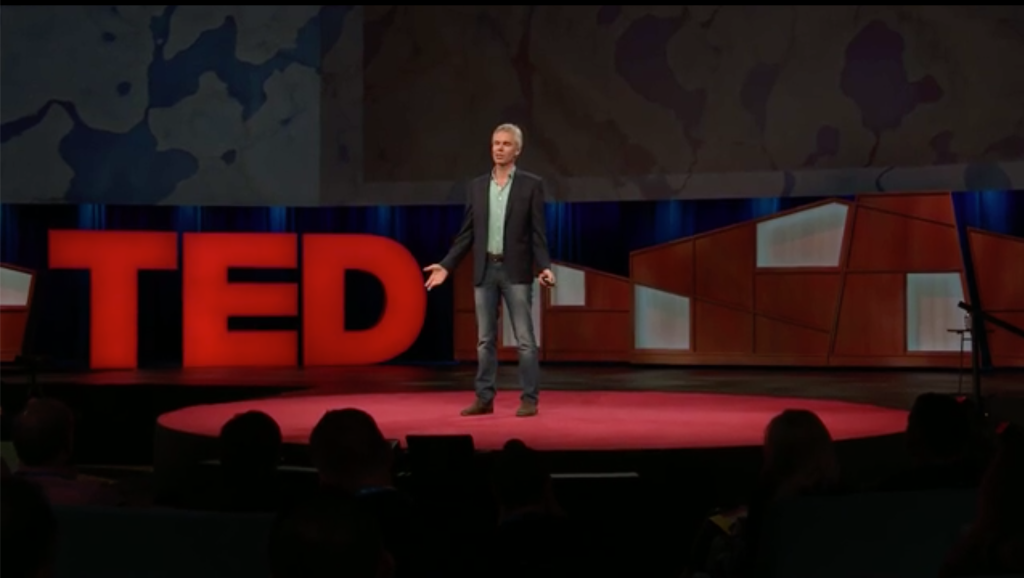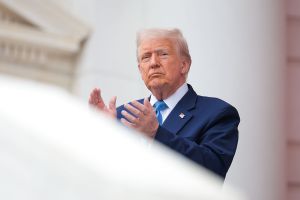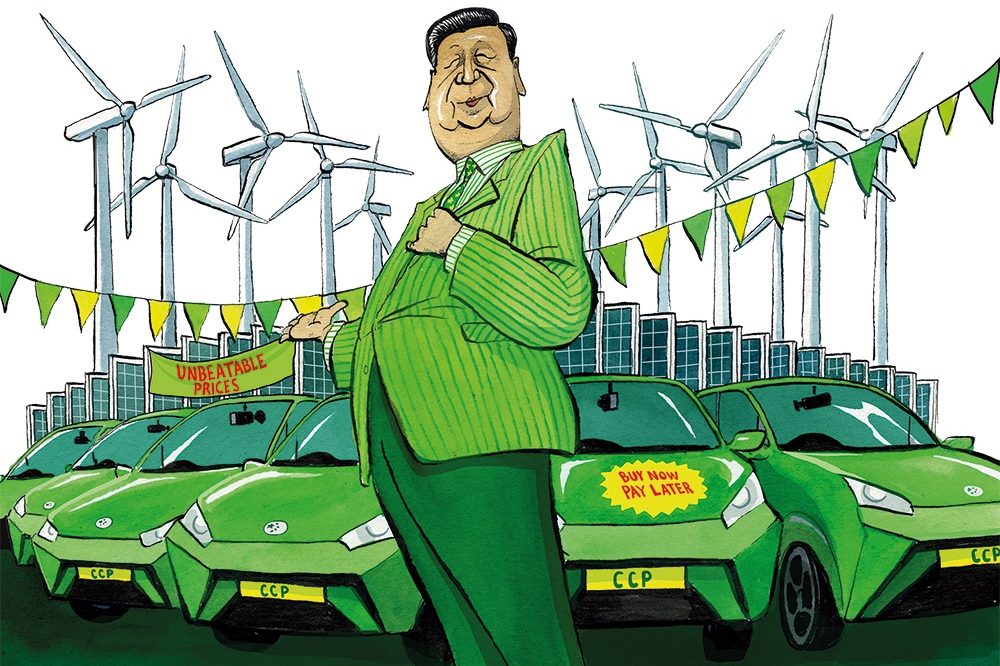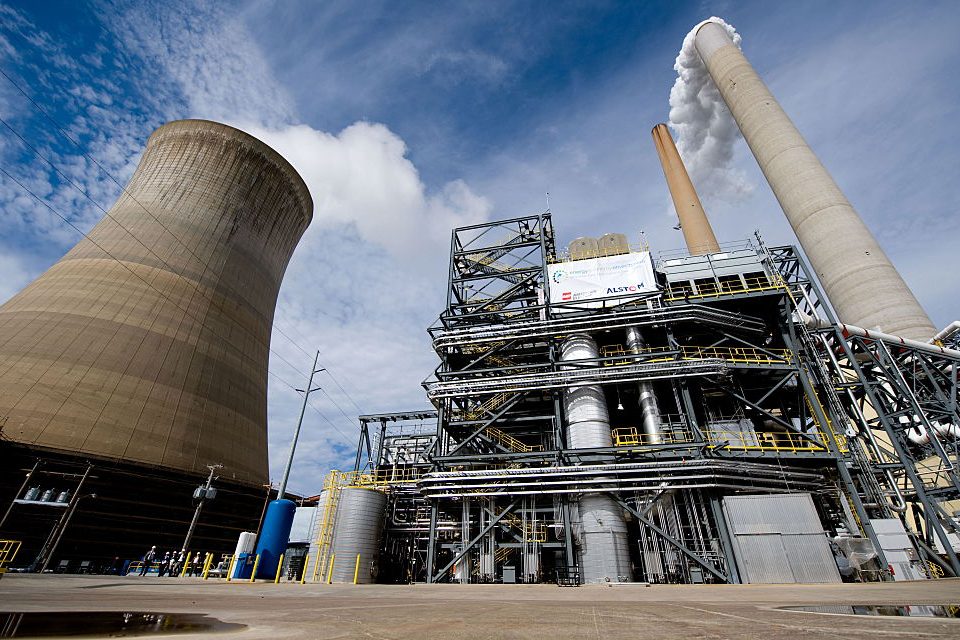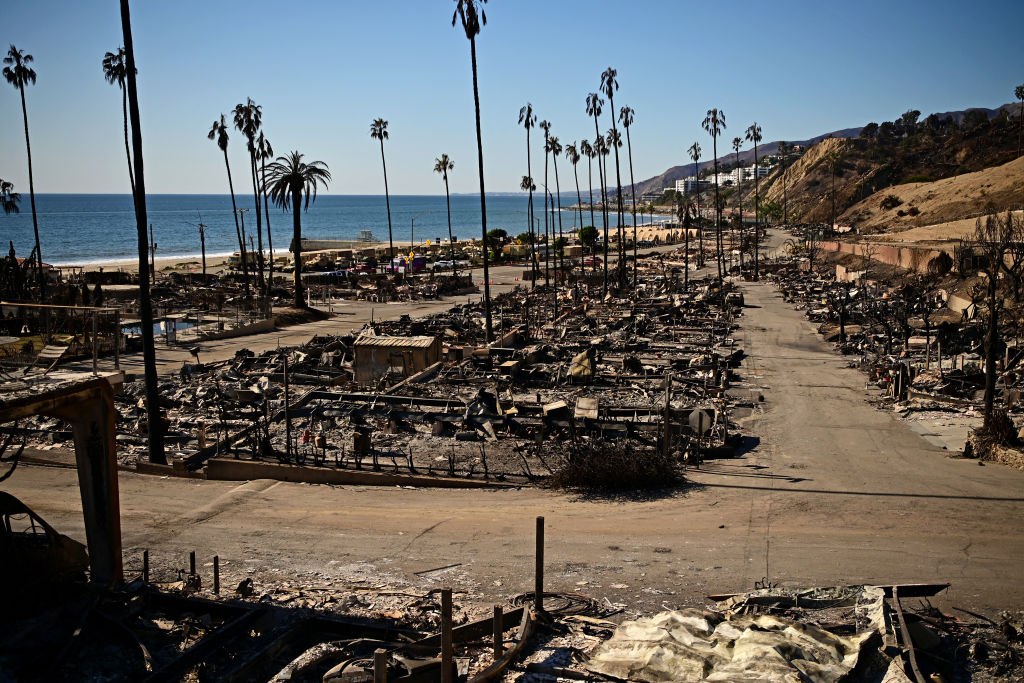After Ted Halstead delivered his speech at the famously liberal TED conference, its founder Chris Anderson remarked, ‘I’m not sure I’ve ever seen a conservative get a standing ovation before that.’ That is because Halstead was not a normal conservative. In a time of American polarization, he had a genius for mobilizing both sides behind a practical and achievable plan, a genius which he applied to solving climate change.
Halstead, a Chicago-born campaigner who died in a hiking accident last week, is not a household name either in the US or around the world. But his legacy may be one of the more consequential of modern times, saving both capitalism and the planet. The alliance he founded includes an unlikely mix of leaders from across political divides and his ideas might just be on the cusp of changing the world.
Halstead identified a key challenge underlying globalization, climate accords and Trumpian trade wars. He saw markets as a huge driver of human prosperity, but he knew that they come with big flaws. As he put it, ‘although capitalism is a wonderful system, like many operating systems it’s prone to bugs… By far the largest is that market prices fail to take social and environmental costs into account. That means that every market transaction is based on incorrect information.’
One such failure is known as ‘carbon leakage’. Governments in the West have imposed limits on emissions, forcing companies to adopt cleaner, often expensive technologies, but we haven’t applied these requirements to our imports. Competitors in China or India have far weaker regulations, so they can undercut Western manufacturers. We then buy their goods, effectively outsourcing our emissions. Despite good progress within the UK, its carbon footprint from imports has gone up by a fifth since 1990, according to the Oxford economist Dieter Helm.
This has fueled the resentment of manufacturing communities in the developed world who have seen jobs disappear, which has undermined faith in environmentalism and driven forward the Trumpian agenda. They see environmental regulations as hampering their ability to compete in a global arena. As the rules are currently set, they are not entirely wrong. When we pay for imports from China and India, we are subsidizing their higher emissions whilst allowing the undercutting of our production base. Yet rolling back environmental progress is the wrong response, as Halstead pointed out.
On the political flipside, market failures have emboldened left-wing groups like Extinction Rebellion, who have used these flaws to call for the downfall of capitalism itself.
Halstead’s solution was simplicity itself, perhaps why it appealed to those suspicious of big government. He called for an economy-wide carbon tax and a border tax on imports from high-emission countries (a ‘carbon border adjustment’). This system would remove the need for multiple regulations, taxes and subsidies. Reducing this complexity makes it easier for businesses to invest and develop the clean technologies of the future. A report by Policy Exchange identified an alphabet soup of interventions — CCL, CFDs, EUAs, FITS, RHI — that could be simplified with Halstead’s proposals.
The border adjustment element would do two big things.
Firstly, it would protect domestic industry, ensuring that our high standards do not come back to bite us. This would free up industry to pioneer new low-carbon technologies without fear of being undercut by China.
Secondly, it creates a virtuous cycle. Imports from China and India and elsewhere will face the same costs as domestic goods when they reach our shores. But by instigating similar regimes of their own, those countries get to join the club and trade with the richest countries in the world. Halstead called this a ‘new climate domino effect’. After one big economy (or several acting together) enacts such a regime, others will follow. Before long, the world has created a global carbon price. Economics would do the heavy lifting, not diplomacy.
***
Get a digital subscription to The Spectator.
Try a month free, then just $3.99 a month
***
The final part of his plan was about giving back. He knew that companies don’t really pay taxes — people do. Any new tax on a business gets baked into consumer prices. To prevent a backlash from consumers paying higher prices, he proposed that any proceeds from the carbon tax and border adjustment be returned directly to citizens in equal amounts — a ‘carbon dividend’. This would be both fiscally neutral and popular with voters.
The plan attracted support from an army of economists, including multiple Nobel Laureates. It became known as the ‘Baker-Shultz Carbon Dividends Plan’, named after two elder statesmen of the Reagan-Bush era who were early proponents. Baker and Shultz were just two founding members of the dazzling alliance that Halstead built, which grew to include physicists, treasury secretaries, central bankers and CEOs. It would be hard to accuse the alliance of being a lefty cabal — it is bipartisan and pragmatic to its core. Carbon border adjustments have also found noteworthy support in Ursula von der Leyen and in Joe Biden.
Conservatives on both sides of the Atlantic spend much time bemoaning the dominance of left-wing rhetoric on green issues. They should call out loony ideas such as degrowth, but that cannot be where their argument stops. If capitalism — and the prosperity it has delivered — is to survive, then there must be big thinking, bipartisanship and practical plans to address the flaws in the system. Ted Halstead knew that and he had the commitment and skills to bring all sides to the table. His death is a huge loss to the conservative cause and the environmental movement. But his legacy may be about to change the world.
This article was originally published on The Spectator’s UK website.



